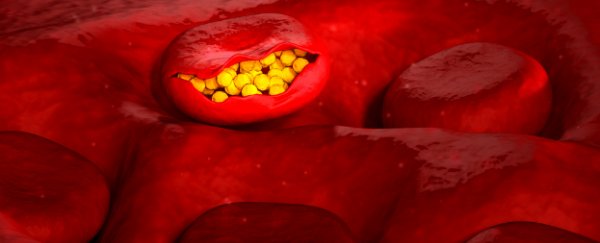An international team of scientists has developed an anti-malarial compound that triggers the immune system to destroy red blood cells infected by malaria, but leaves healthy cells unharmed.
The compound, known as (+)-SJ733, has already been tested in mice, and a single dose has been shown to kill 80 percent of malaria parasites in the bloodstream within 24 hours. Within 48 hours the parasite was completely undetectable.
Malaria is caused by a parasite spread through the bite of an infected mosquito. Once in our body, it infects and hijacks our red blood cells, using them to produce more malaria parasites. Currently, the World Health Organisation estimates that in Africa a child dies of malaria every minute.
But the new research, led by St Jude Children's Research Hospital in the US, suggests that this new compound could offer a potential cure.
"Our goal is to develop an affordable, fast-acting combination therapy that cures malaria with a single dose," said biochemist R. Kiplin Guy, one of the lead authors of the study, in a press release. "These results indicate that SJ733 and other compounds that act in a similar fashion are highly attractive additions to the global malaria eradication campaign."
The new compound works by disrupting the activity of the ATP4 protein in the parasites - this protein functions as a pump that the parasites need to maintain their proper sodium balance.
Once the ATP4 protein is blocked, it triggers a series of changes in the malaria-infected red blood cells and marks them for destruction by the immune system. These cells also shrank in size, became more rigid and changed shape - characteristics of ageing red blood cells.
This then causes the immune system to treat these infected cells like any other aged cells, and clear them away.
The results of the study have been published in the Proceedings of the National Academy of Science of the United States of America, and the scientists are now planning human trials.
Promisingly, the research also suggests that another class of drugs - known as spiroindolones - could have similar effects on malaria as they also target the ATP4 protein, and some are already being clinically trialled on humans.
"The data suggest that compounds targeting ATP4 induce physical changes in the infected red blood cells that allow the immune system or erythrocyte quality control mechanisms to recognise and rapidly eliminate infected cells," said co-author Joseph DeRisi in the release.
"This rapid clearance response depends on the presence of both the parasite and the investigational drug. That is important because it leaves uninfected red blood cells, also known as erythrocytes, unharmed."
And because the drug acts so quickly, it could also help to slow and suppress the development of drug-resistant strains of malaria, which is currently a challenge in the developing world.
Source: ScienceDaily
